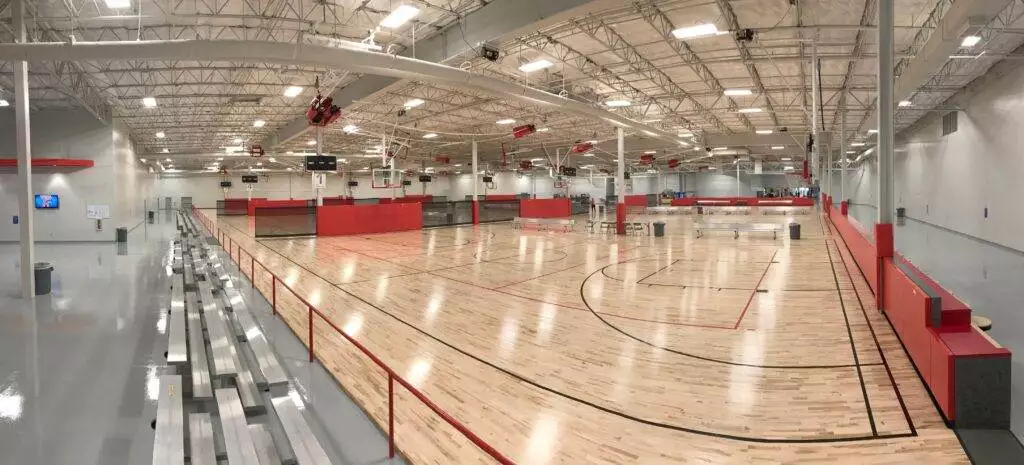Blogs & News
- Category: Laboratory
- DATE: February 26, 2025
What Materials Are Used in Laboratory Cabinets And Countertops?
Laboratories are environments that demand precision, safety, and durability. The materials used in lab cabinets and countertops need to withstand a variety of conditions—from chemical exposure to heat, moisture, and wear. Choosing the right materials is essential not only for maintaining the integrity of the lab but also for ensuring the safety of those who work in it. In this article, we will explore the most commonly used materials for laboratory cabinets and countertops and why they are ideal for different lab environments. Let’s take a more extensive look to start at laboratory countertop materials. Epoxy Resin: The Gold Standard
Epoxy resin is often considered the gold standard for laboratory countertops and good reason. This material offers unparalleled chemical resistance, making it an ideal choice for labs that work with harsh chemicals. Epoxy resin can withstand exposure to acids, solvents, and other reactive substances without breaking down or showing signs of wear. Additionally, it has high heat resistance, able to endure extreme temperatures without warping or degrading. Its moisture resistance is another advantage, as it prevents the buildup of mold and bacteria in humid environments.
Beyond its functional properties, epoxy resin has a sleek, seamless appearance, making it a top choice for laboratories where both form and function matter.
Phenolic Resin: Lightweight and Durable
While epoxy resin dominates in many labs, phenolic resin offers a cost-effective alternative that doesn’t compromise on durability. It’s lightweight yet robust, making it easier to install and work with. Phenolic resin is particularly well-suited for labs that deal with moisture, as it’s resistant to both water and biological growth.
One of the key benefits of phenolic resin is its versatility. This material can be customized to fit specific laboratory needs, allowing for variations in thickness, color, and overall design. It’s also highly resistant to chemicals and heat, though not to the same degree as epoxy resin. However, for labs with moderate exposure to corrosive substances, phenolic resin provides a strong balance between durability and cost.
Stainless Steel: Hygienic and Easy to Maintain
Stainless steel is a classic choice for laboratories that prioritize hygiene and sterility. Its non-porous surface makes it easy to clean and sanitize, which is critical in environments where contamination must be avoided at all costs. Stainless steel is resistant to corrosion, even when exposed to caustic chemicals or moisture, making it ideal for labs working with biological materials or requiring frequent sterilization.
Moreover, stainless steel is highly durable and able to withstand impacts, heavy equipment, and rigorous daily use. It’s the go-to material for labs dealing with wet processes or where hygiene is essential.
High-Pressure Laminate: Cost-Effective with Customization Options
High-pressure laminate is a cost-effective solution for labs that require durability but don’t necessarily handle harsh chemicals. While it may not be as chemically resistant as epoxy or phenolic resin, high-pressure laminate holds up well under normal lab conditions. It’s scratch-resistant, easy to clean, and available in a variety of colors and finishes, making it ideal for educational labs and general-use spaces.
High-pressure laminate provides a good balance between affordability and durability, particularly in labs where aesthetics are important alongside functionality.
Chemical-Resistant Laminate: Balancing Cost and Functionality
Chemical-resistant laminate offers a more robust alternative to standard high-pressure laminate, providing added protection against a wider range of chemicals. This makes it a good choice for educational labs or research environments that handle less aggressive chemicals but still require a degree of resistance. It’s also moisture and heat-resistant, offering durability in spaces where spills and splashes are common.
Polypropylene: Superior Chemical Resistance
For labs that work with highly corrosive chemicals like acids and alkalis, polypropylene is an excellent choice for both cabinets and countertops. It’s incredibly resistant to chemical attack, making it ideal for environments where other materials would degrade quickly. Polypropylene is also non-conductive, making it suitable for labs that need to avoid electrical conductivity. Additionally, it’s lightweight, easy to clean, and low maintenance.
Laboratory Cabinets AKA Laboratory Casework
As for lab cabinets, or casework, the sentiment is the same: different types of labs have varying needs regarding materials. The choice between wood, steel, stainless steel, or plastic laminate casework depends on the laboratory’s purpose, the substances it handles, and the environment in which it operates. You can dive deeper into casework options in our previous article, “How to Select Casework and Equipment for Your Lab.”
Conclusion
Selecting the right materials for your laboratory cabinets and countertops is crucial for creating a functional, safe, and long-lasting workspace. Each material offers unique advantages depending on the lab’s specific needs—whether it’s the unparalleled chemical resistance of epoxy resin, the cost-effective versatility of phenolic resin, or the hygienic benefits of stainless steel. By understanding the demands of your lab environment and choosing materials that meet those requirements, you ensure not only the safety of your lab but also its long-term success.
At H2I Group, we specialize in creating tailored laboratory solutions that optimize performance and durability. Whether you’re outfitting a cutting-edge research facility or upgrading a school laboratory, our team is here to help. Explore our full range of laboratory solutions, or discover how we can assist with other needs, including athletic, technical education, flooring, and lockers and storage solutions. Reach out to us today to learn how we can bring your vision to life!
recent blogs



GET STARTED
LET’S TALK ABOUT YOUR PROJECT TODAY
Are you in need of expert guidance for your building project? H2I Group’s experienced professionals are here to assist you with any questions or concerns you may have. Contact us today to learn more about our services and how we can help you achieve your goals.

